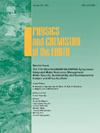管理城市地区的气候变化风险:非正式住区居民应对气候变化的决定因素
IF 3
3区 地球科学
Q2 GEOSCIENCES, MULTIDISCIPLINARY
引用次数: 0
摘要
城市地区是气候变化风险管理的中心,但也是受气候变化影响最严重的地区之一,尤其是脆弱性最高的非正式住区。然而,关于非正规部门居民如何应对CC效应的信息很少。本研究考察了尼日利亚阿布贾联邦首都非正式部门家庭CC应对策略的决定因素。通过对5个非正式住区的388个有目的地选择的家庭进行结构化问卷调查,并使用逻辑回归分析确定影响其CC响应的关键因素。调查结果显示,虽然55% - 83%的受访者在研究地点意识到CC响应策略,但实际采用率很低。只有27%的人使用风扇或空调降温,10%的人根据气候条件的变化调整季节性活动。其余16种应对策略,包括太阳能利用、防洪、植树、移民和基础设施调整,每一种策略的使用率都不到7%。总体而言,这些非正式住区的CC响应是不协调的,被动的,缺乏制度支持。采用CC响应的障碍包括缺乏知识(24%)、基础设施不足(23%)、财政限制(21%)和时间限制(19%)。Logistic回归分析发现,教育、收入和职业是CC响应采用的显著正决定因素,而婚姻状况具有负向影响。这些因素解释了CC反应中80%的变化,模型准确率为94.6%。为了提高非正规部门家庭的抵御能力,需要采取有效的战略,包括强化灾害风险教育、通过赠款和小额信贷提供经济支持,以及排水系统和绿地等基础设施升级。制度性干预对于支持城市非正式住区协调和可持续的气候适应至关重要。升级项目需要提供一些物理基础设施,以使该地区更具抵御气候变化的能力。本文章由计算机程序翻译,如有差异,请以英文原文为准。
Managing climate change risks in urban areas: determinants of climate change responses by informal settlement dwellers
Urban areas are central to climate change (CC) risk management but are among the most affected by its impacts, particularly informal settlements, where vulnerability is highest. However, little information exists on how informal sector dwellers respond to CC effects. This study examines the determinants of CC response strategies among informal sector households in Abuja Federal Capital City, Nigeria. A structured questionnaire survey was conducted with 388 purposefully selected households across five informal settlements, and logistic regression analysis was used to identify key factors influencing their CC responses. Findings show that while 55 %–83 % of respondents across the study locations were aware of CC response strategies, actual adoption was low. Only 27 % used fans or air conditioners for cooling, and 10 % adjusted seasonal activities in response to changing climate conditions. The remaining 16 response strategies, including solar energy use, flood prevention, tree planting, migration, and infrastructural adjustments, were each used by less than 7 % of households. Overall, CC responses in these informal settlements were uncoordinated, reactive, and lacked institutional support. Barriers to CC response adoption included lack of knowledge (24 %), inadequate infrastructure (23 %), financial constraints (21 %), and time limitations (19 %). Logistic regression analysis identified education, income, and occupation as significant positive determinants of CC response adoption, while marital status had a negative influence. These factors explained 80 % of the variation in CC responses, with a model accuracy of 94.6 %. To enhance CC resilience among informal sector households, effective strategies are needed, including intensive disaster risk education, economic support through grants and microfinance, and infrastructural upgrades such as drainage systems and green spaces. Institutional interventions are essential to support coordinated and sustainable climate adaptation in urban informal settlements. Upgrading programs are needed to provide some physical infrastructure to make the area more CC resilient.
求助全文
通过发布文献求助,成功后即可免费获取论文全文。
去求助
来源期刊

Physics and Chemistry of the Earth
地学-地球科学综合
CiteScore
5.40
自引率
2.70%
发文量
176
审稿时长
31.6 weeks
期刊介绍:
Physics and Chemistry of the Earth is an international interdisciplinary journal for the rapid publication of collections of refereed communications in separate thematic issues, either stemming from scientific meetings, or, especially compiled for the occasion. There is no restriction on the length of articles published in the journal. Physics and Chemistry of the Earth incorporates the separate Parts A, B and C which existed until the end of 2001.
Please note: the Editors are unable to consider submissions that are not invited or linked to a thematic issue. Please do not submit unsolicited papers.
The journal covers the following subject areas:
-Solid Earth and Geodesy:
(geology, geochemistry, tectonophysics, seismology, volcanology, palaeomagnetism and rock magnetism, electromagnetism and potential fields, marine and environmental geosciences as well as geodesy).
-Hydrology, Oceans and Atmosphere:
(hydrology and water resources research, engineering and management, oceanography and oceanic chemistry, shelf, sea, lake and river sciences, meteorology and atmospheric sciences incl. chemistry as well as climatology and glaciology).
-Solar-Terrestrial and Planetary Science:
(solar, heliospheric and solar-planetary sciences, geology, geophysics and atmospheric sciences of planets, satellites and small bodies as well as cosmochemistry and exobiology).
 求助内容:
求助内容: 应助结果提醒方式:
应助结果提醒方式:


